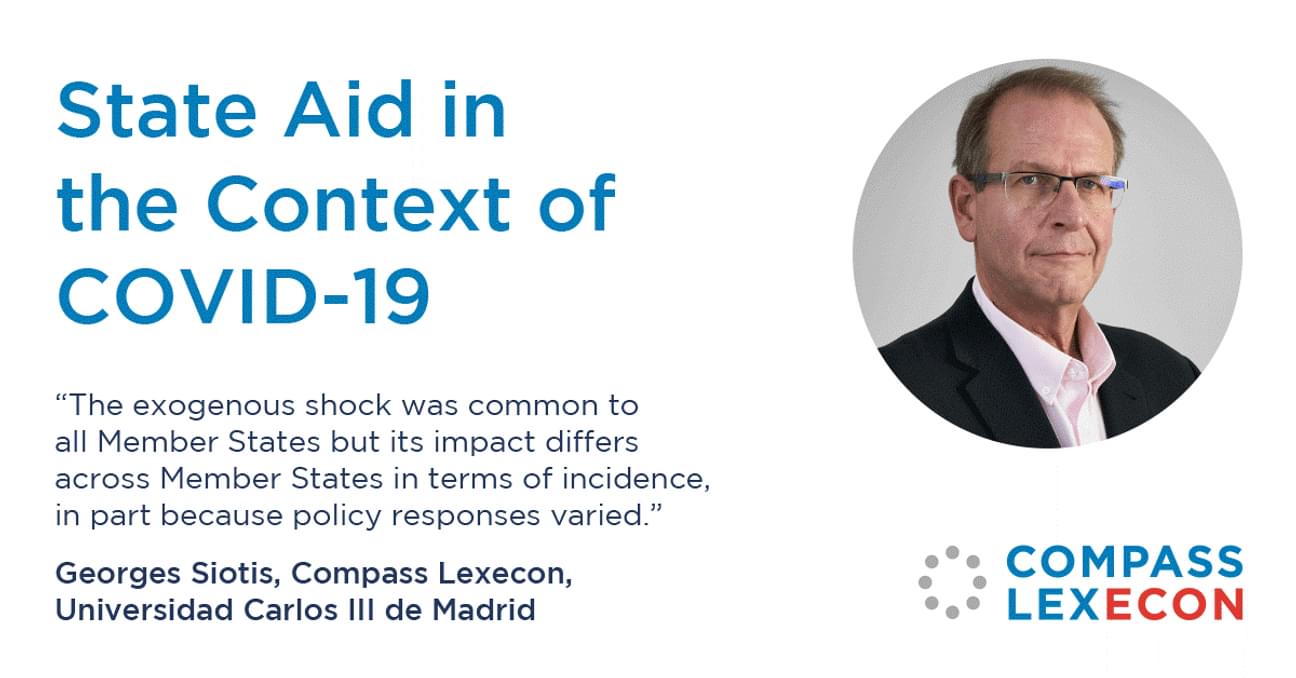State Aid in the Context of COVID-19

Share
During the COVID-19 crisis, we have seen an exceptional number of credit rating downgrades, a large number of firms have scrambled for liquidity, and default rates are expected to spike above 10%. In response, the European Commission has adopted a Temporary Framework (“TF”) which is much more generous and flexible than that adopted during the financial crisis in 2009.
Expert economist Georges Siotis highlights three aspects of the TF worth noting:
- The granting of subsidized loans and guarantees is not conditioned by the credit rating of the recipient.
- The amounts of direct grants deemed as “no aid” are larger as compared to the 2009 TF.
- The Commission is contemplating large scale public equity participation or recapitalization.
The ability of some Member States to exploit this flexibility is, however, limited by their fiscal position. Through general measures (i.e. non-selective and thus non-aid), some Member States’ can maintain productive capacity largely intact, while other Member States’ ability to do so is severely curtailed. In the context of a protracted contraction, there is a clear risk of an economic “attrition war” between Member States.
In the longer term, Georges comments that the sustainability of this scale of public intervention will depend on the shape of the recovery. One possible scenario would be an L (or flat U)-shaped contraction followed by a rather long period of stagnation before growth resumes. The decline in GDP could exceed 10% in some Member States, bond spreads on sovereign debt would rise and the productive capacity would be significantly reduced, leading to creeping stagflation. A more positive scenario would be a V-shaped contraction followed by a quick recovery. Under this (plausible) scenario, borrowing costs for highly indebted Member States remain low, the abrupt shortfall in aggregate demand is neutered by heavy public spending and the temporary framework is part of the solution.
Georges Siotis (Consultant, Compass Lexecon) gave an economist’s view in a webinar on “State Aid in the Context of COVID-19”, joined by Jacques Derenne (Partner, Sheppard Mullin – Associate Professor, Liège University & Brussels School of Competition), François-Charles Laprévote (Partner, Cleary Gottlieb) and Nicole Robins (Partner, Oxera). The webinar was organized by Concurrences, with 50% of the proceeds going to Doctors Without Borders, supporting people affected by the COVID-19 crisis.
Read the full synopsis and transcript of the webinar presentations.


